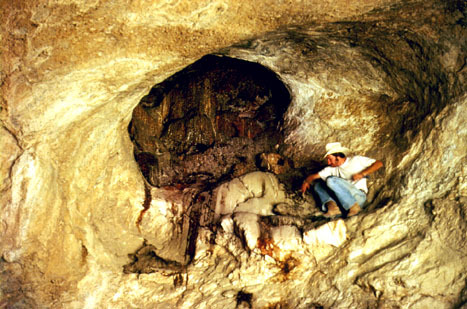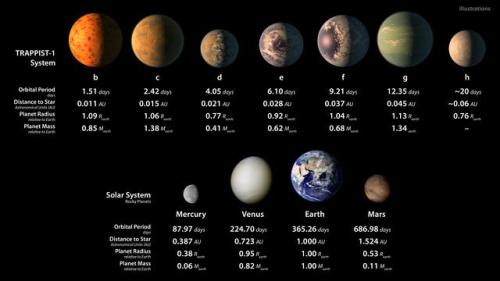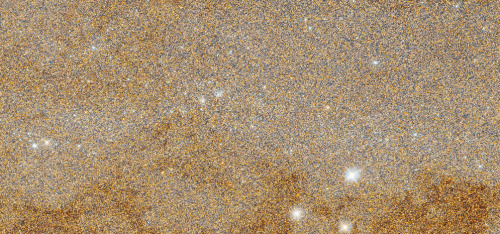Bizarre Planets.







Bizarre planets.
More Posts from Study-astronomy-biology-ref and Others
What would happen if two galaxies or black holes became one?
Hi there!
Astronomers have had the opportunity to observe galaxies colliding so they have been able to learn more about them!
In a galaxy collision, although quite violent, nothing usually happens to the stars or any solar systems! This is due to the vast spaces between stars. Usually the friction and gravitational interactions between the galaxies is what makes it violent. Our very own Milky Way galaxy is on collision course for the Andromeda Galaxy. It’s predicted that nothing will happen to our solar system, that we will just be flung into another part of the galaxy!
Black holes on the other hand are much more violent. Astronomers haven’t actually witnessed black holes colliding, but through computer simulations they’ve been able to simulate it!
The collision begins once they come too close to each other to escape each other’s gravity. Once that happens they’ll spiral towards each other until they eventually collide. Since it’s so violent they actually send ripples into space time!
Hope that helped! If not, feel free to ask me anything else :) xx

wait what

…

turns out that pack rats (Neotoma sp.) creates these big middens which they urinate on. The urine then crystallizes over time, creating amber-like deposits. Some of the ones found in caves are 50.000 years old and contains intact plant material, allowing scientists to analyse the prehistoric flora.


the dark deposits in the middle are 10.000+ year old crystallized rat piss
what a world

Saturn’s hexagon
This colorful view from NASA’s Cassini mission is the highest-resolution view of the unique six-sided jet stream at Saturn’s north pole known as “the hexagon.” This movie, made from images obtained by Cassini’s imaging cameras, is the first to show the hexagon in color filters, and the first movie to show a complete view from the north pole down to about 70 degrees north latitude.
Via NASA: In Full View: Saturn’s Streaming Hexagon

Underwater explosions are incredibly dangerous and destructive, and this animation shows you why. What you see here are three balloons, each half-filled with water and half with air. A small explosive has been set off next to them in a pool. In air, the immense energy of an explosion actually doesn’t propagate all that far because much of it gets expended in compressing the air. Water, on the other hand, is incompressible, so that explosive energy just keeps propagating. For squishy, partially air-filled things like us humans or these balloons, that explosion’s force transmits into us with nearly its full effect, causing expansion and contraction of anything compressible inside us as our interior and exterior pressures try to equalize. The results can be devastating. To see the equivalent experiment in air, check out Mark Rober’s full video on how to survive a grenade blast. (Image credit: M. Rober, source)

THE TRAPPIST-1 DISCOVERY
NASA’s announcement today was awe-inspiring. We’ve compiled the essential info you want to know about this incredible discovery.
OVERVIEW: 7 PLANETS, 3 HABITABLE
Astronomers have found at least seven Earth-sized planets orbiting the same star 40 light-years away, according to a study published Wednesday in the journal Nature.
The seven exoplanets were all found in tight formation around an ultracool dwarf star called TRAPPIST-1. Estimates of their mass also indicate that they are rocky planets, rather than being gaseous like Jupiter. Three planets are in the habitable zone of the star, known as TRAPPIST-1e, f and g, and may even have oceans on the surface.
“I think we’ve made a crucial step towards finding if there is life out there,” said Amaury Triaud, one of the study authors and an astronomer at the University of Cambridge. “I don’t think any time before we had the right planets to discover and find out if there was (life). Here, if life managed to thrive and releases gases similar to what we have on Earth, we will know.”
ONLY 40 LIGHT YEARS AWAY
The system is just 40 light-years away. On a cosmic scale, that’s right next door. Of course, practically speaking, it would still take us hundreds of millions of years to get there with today’s technology – but again, it is notable in that the find speaks volumes about the potential for life-as-we-know-it beyond Earth.
The Hubble Space Telescope is already being used to search for atmospheres around the planets, and Emmanuël Jehin, a scientist who also worked on the research, asserts that future telescopes could allow us to truly see into the heart of this system: “With the upcoming generation of telescopes, such as ESO’s European Extremely Large Telescope and the NASA/ESA/CSA James Webb Space Telescope, we will soon be able to search for water and perhaps even evidence of life on these worlds.”
ALIEN SKIES
In contrast to our sun, the TRAPPIST-1 star – classified as an ultra-cool dwarf – is so cool that liquid water could survive on planets orbiting very close to it, closer than is possible on planets in our solar system. All seven of the TRAPPIST-1 planetary orbits are closer to their host star than Mercury is to our sun. The planets also are very close to each other. If a person was standing on one of the planet’s surface, they could gaze up and potentially see geological features or clouds of neighboring worlds, which would sometimes appear larger than the moon in Earth’s sky.
The planets may also be tidally locked to their star, which means the same side of the planet is always facing the star, therefore each side is either perpetual day or night. This could mean they have weather patterns totally unlike those on Earth, such as strong winds blowing from the day side to the night side, and extreme temperature changes.

A shot of just a tiny bit of the Andromeda Galaxy, from the sharpest ever view taken by the Hubble Space Telescope
Full size image

Infographic about Planet 9, the required planet to explain the trajectory of six of the most distand known Kuiper Belt Objects.
Source: http://imgur.com/S5faizX
I MADE AN ART MASTERPOST
Bodies:
how to draw arms
*Hands*
How To Draw Hands
hands hands hands
more hands
another hand tutorial
How to draw butts&thighs
draw knees
draw feet
Kneeling + Sitting ref
Body anatomy help
The male torso
Muscular male with bow stock photos
Lots of Stuff
All about the human body
Pose studies
100+ anatomy references
Sitting poses
pose reference blo
realistic woman body ref
male body
Pose Maker
Poses
hundreds of pose references wowie
a guide to figure drawin
torso reference
How to draw penis
Penis ref
Kissing ref
Faces:
Drawing expressions
Creating expression
Avoiding same face
How to draw faces
*Heads
Heads&Angles
contouring and highlightin
drawing eyes
*How To Draw Noses
drawing ears
how to draw profiles
*How To Draw Lip
lips ref
lip tutorial
Hair:
Hair tutorial
Hair+Fur
how to draw curls
*How To Draw Hair
Clothes:
Drawing clothe folding
How to draw folds
Folding ref
how to draw jeans
hat ref
*How To Draw Fabric Folds/Creases
how to draw shoes/feet
hecka lot of clothing refs
Other (Person Related):
Flower crown tutorial
Drawing horse/animal legs on humans
Anatomy of mutant humans
Mass art ref
Drawing human wings
draw wings
*How To Draw Cuts And Bruises
wings
Other (non-specific):
How to draw ice
Drawing clouds
Creature design
Tutorial masterpost (100+)
How to colour
Drawing ref masterpost (10+)
paint blood
shadow help
draw grass
I made this most for my own benefit to organize this stuff, and have no idea how to make a masterpost!
-
 valkyrierps liked this · 1 year ago
valkyrierps liked this · 1 year ago -
 megan-mayhem liked this · 1 year ago
megan-mayhem liked this · 1 year ago -
 enhid-events liked this · 1 year ago
enhid-events liked this · 1 year ago -
 snailswithwings liked this · 5 years ago
snailswithwings liked this · 5 years ago -
 yezhi-baba liked this · 5 years ago
yezhi-baba liked this · 5 years ago -
 multifandomtrashpanda liked this · 6 years ago
multifandomtrashpanda liked this · 6 years ago -
 hetero-flexibility liked this · 6 years ago
hetero-flexibility liked this · 6 years ago -
 krissninja reblogged this · 6 years ago
krissninja reblogged this · 6 years ago -
 littlebunnyman reblogged this · 6 years ago
littlebunnyman reblogged this · 6 years ago -
 jungjxxhyun liked this · 7 years ago
jungjxxhyun liked this · 7 years ago -
 amyramsey liked this · 7 years ago
amyramsey liked this · 7 years ago -
 eatyqt liked this · 7 years ago
eatyqt liked this · 7 years ago -
 joe311113 reblogged this · 7 years ago
joe311113 reblogged this · 7 years ago -
 oisheeeee28-blog reblogged this · 7 years ago
oisheeeee28-blog reblogged this · 7 years ago -
 redbarongaming-blog liked this · 7 years ago
redbarongaming-blog liked this · 7 years ago -
 meggaroniandcheeseplease reblogged this · 7 years ago
meggaroniandcheeseplease reblogged this · 7 years ago -
 aegeus-greekaegeansevresjuly1920 reblogged this · 8 years ago
aegeus-greekaegeansevresjuly1920 reblogged this · 8 years ago -
 chazzlemcfrazzlelove-blog liked this · 8 years ago
chazzlemcfrazzlelove-blog liked this · 8 years ago -
 pooft liked this · 8 years ago
pooft liked this · 8 years ago -
 sleepyreflection liked this · 8 years ago
sleepyreflection liked this · 8 years ago -
 -gintonix- liked this · 8 years ago
-gintonix- liked this · 8 years ago -
 herttainen liked this · 8 years ago
herttainen liked this · 8 years ago -
 herttainen reblogged this · 8 years ago
herttainen reblogged this · 8 years ago -
 evergreen20 reblogged this · 8 years ago
evergreen20 reblogged this · 8 years ago -
 trustmeimawhalebiologist liked this · 8 years ago
trustmeimawhalebiologist liked this · 8 years ago -
 d-e-l-i-o reblogged this · 8 years ago
d-e-l-i-o reblogged this · 8 years ago -
 d-e-l-i-o liked this · 8 years ago
d-e-l-i-o liked this · 8 years ago -
 xzeniax liked this · 8 years ago
xzeniax liked this · 8 years ago -
 batsbrains reblogged this · 8 years ago
batsbrains reblogged this · 8 years ago -
 frootflies reblogged this · 8 years ago
frootflies reblogged this · 8 years ago -
 punxsutawneyfilth liked this · 8 years ago
punxsutawneyfilth liked this · 8 years ago -
 psychochild666 liked this · 8 years ago
psychochild666 liked this · 8 years ago -
 dumpsteriot liked this · 8 years ago
dumpsteriot liked this · 8 years ago -
 mjthefag liked this · 8 years ago
mjthefag liked this · 8 years ago -
 s-kellington liked this · 8 years ago
s-kellington liked this · 8 years ago -
 a-cat liked this · 8 years ago
a-cat liked this · 8 years ago -
 drdongleberry-blog reblogged this · 8 years ago
drdongleberry-blog reblogged this · 8 years ago

This is a studyblr for everyone have some passion for science, especially astronomy and biology
129 posts

